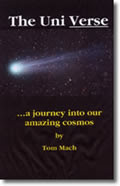The following article appeared in the April 9, 2009 issue of Writing Forward
How Poetry Writing Improves All Other Writing
by Melissa Donovan
In the world of writing, one form stands out as different from all the rest: poetry.
Poetry writing is not bound by the chains of sentence and paragraph structures, context, or even grammar.
In the magical world of poetry, you can throw all the rules out the window and create a piece of art, something that is entirely unique.
That doesn’t mean writing poetry is creatively easy. It can be much more difficult to make a poem than it is to write an essay or piece of fiction. There’s so much creative space, and without any limitations whatsoever, it can be overwhelming.
Yet poetry writing brings a great bounty of writerly skills and tools, and many of these will spill over into other writing forms, sprinkling them with just a little of the magic that is poetry. And while poetry might not be your favorite form of writing, reading poetry, working through some basic poetry writing exercises, and engaging in poetry writing, even just a little bit, will improve your overall writing skills.
What sets poetry apart from other types of writing? What is it about poetry, beyond the fact that it has less constraints, that actually makes someone a better writer in all areas, rather than just a better poet?
Mindful Imagery
While other creative writing forms may use vivid imagery to create pictures in the reader’s mind, no other form comes close to what can be achieved with imagery in poetry writing.
Most writing forms attempt to explain something - a scene, a situation, an idea, a set of instructions, an experience. Poetry doesn’t bother to explain. It shows. It paints a picture, takes a snapshot, and then pulls you into it.
In a poetry workshop, you will hear this chant over and over: show, don’t tell. When you master the art of showing readers a scene through imagery, you can easily pull it into your other writing, creating work that is alive in a reader’s mind.
Emotions and Language
Of course, language is essential to all types of writing, but in poetry, words must be plucked carefully and with great consideration. Poetry writing will launch you into the lexicon, headfirst and spinning.
In fiction, readers connect emotionally with characters. We get to know them, understand them, and come to relate to them or even think of them as our own personal friends (or enemies).
In poetry, there are rarely characters, so instead of using the emotional connection forged between people, a writer must harness emotional language and grip the reader’s heart through scenes, ideas, and images that make readers feel. This is achieved by learning how to select emotionally charged language.
Physical Rhythm
A poet must be constantly aware of meter and rhythm. Poems and song lyrics are often compared, confused, and intermingled, and with good reason. Both poetry and music must pay attention to cadence and melody.
Think about how you feel when you hear a particular piece of music. You tap your feet, shake your hips, bang your head. Our bodies respond physically to music.
Through poetry writing comes a natural ability to marry musicality with language. When this musicality, this rhythm, is infused in other forms of writing, readers feel it in their bones and muscles. They will have a physical reaction.
Poetry Writing
Writing is about connecting with readers. And poetry writing helps you develop skills for connecting with readers mentally (imagery), emotionally (language), and physically (rhythm).
Suddenly, your fiction comes alive with scenes that make people see. Your essays are woven with words that make people feel. And your blog posts make people want to jump out of their seats and start dancing.
It’s this use of imagery, language, and rhythm that keep readers turning pages, anxious to find out what they’ll experience next.
Saturday, April 11, 2009
Subscribe to:
Post Comments (Atom)

No comments:
Post a Comment